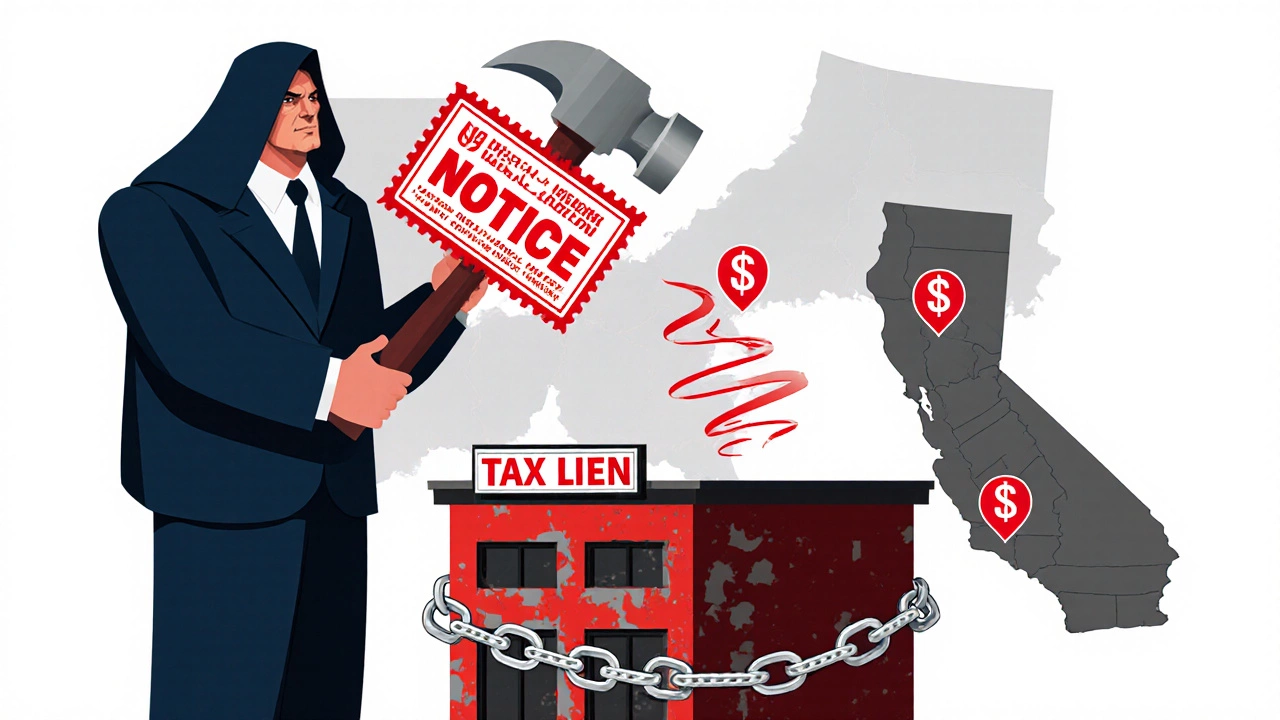LLC Tax Penalty Calculator
Calculate Your LLC Tax Penalties
Estimate penalties and interest for missed LLC tax filings using the IRS and state penalty guidelines.
Penalty Calculation Results
Failure-to-File Penalty
Failure-to-Pay Penalty
Interest Accrued
Important Note
These calculations estimate potential penalties based on IRS guidelines. Actual amounts may vary based on your specific situation, state laws, and IRS discretion. Always consult a tax professional for accurate advice.
When a LLC is a Limited Liability Company that operates as a separate legal entity for its owners, it must meet federal and state tax obligations. Skipping the required tax return isn’t just a paperwork oversight; it can unleash a series of financial and legal problems that hurt both the business and its members.
Why filing matters for an LLC
Even though an LLC itself is a pass‑through entity for federal income tax, the IRS still expects a yearly filing - typically Form 1065 and the accompanying Schedule K‑1 for each member. These documents tell the government how much profit or loss each owner should report on their personal returns. Missing a filing breaks the information flow, so the IRS can’t verify individual tax liabilities.
Immediate federal repercussions
The IRS treats a late or missing filing as a serious compliance breach. The most common financial hits are:
- Failure‑to‑File penalty: 5% of the unpaid tax per month, up to 25% of the total tax due.
- Interest on any unpaid tax - compounded daily from the original due date.
- Possible "failure‑to‑pay" penalty if the tax isn’t settled, adding 0.5% per month.
These amounts stack, meaning a $10,000 tax bill could swell to over $13,000 after several months of neglect.
State‑level fallout
Each state where the LLC is registered or does business has its own filing calendar. Missing a state return can bring:
- State‑specific penalties often mirroring the federal 5% per month rule.
- Additional interest rates that may be higher than the federal rate.
- Administrative fees for reinstating a suspended or forfeited LLC status.
For example, New York imposes a $100 penalty plus 0.5% per month on any unpaid franchise tax, while California adds a $500 minimum penalty for a late LLC return.

Risk of an audit or enforcement action
Non‑filers attract more scrutiny. The IRS may issue a "notice of failure to file" (Letter 15), followed by a "notice of intent to levy" if the debt persists. In worst‑case scenarios, the agency can:
- File a substitute return on the LLC’s behalf, often inflating the tax owed.
- Place a tax lien on the LLC’s assets, freezing bank accounts and property.
- Issue a levy that seizes cash flow, equipment, or real estate.
These steps not only drain resources but also damage credibility with vendors and lenders.
Impact on your LLC’s legal standing
One of the main attractions of an LLC is the liability shield for its members. However, if the LLC is deemed non‑compliant, courts can "pierce the veil" and hold owners personally responsible for debts, especially when the entity is suspended or dissolved by the state.
Furthermore, persistent non‑filers may face forced dissolution. The state can administratively dissolve the LLC, revoking the right to conduct business, entering contracts, or even to retain the name.
How to remedy missed filings
Good news: the IRS provides pathways to get back on track. Here’s a step‑by‑step plan:
- Gather financial records: Pull together all income, expenses, and capital accounts for the missed year.
- Prepare and submit Form 1065 and each member’s Schedule K‑1. If the original deadline has passed by more than three months, attach a statement explaining the delay.
- Pay any estimated tax due as soon as possible to stop interest from accruing.
- File Form 843 to request a penalty abatement if you have reasonable cause (e.g., serious illness, natural disaster).
- Contact the state tax agency to file any required returns and pay associated fees.
- Set up automated reminders for future filing dates - the IRS sends an electronic Notice CP2000 for missing information.
If the tax bill is sizable, consider an installment agreement or an Offer in Compromise, both of which the IRS reviews on a case‑by‑case basis.

Bottom‑line checklist for LLC owners
- Mark the federal filing deadline (March 15 for most LLCs) on your calendar.
- Confirm state filing dates - they can differ by a few weeks.
- Maintain accurate bookkeeping throughout the year.
- File Form 1065 and Schedule K‑1 on time, even if you owe no tax.
- Pay estimated taxes quarterly to avoid a large year‑end balance.
- If you miss a deadline, act immediately: file, pay, and request penalty relief.
Comparison of federal penalties vs. interest vs. failure‑to‑pay
| Cost Type | How It’s Calculated | Maximum Rate | Typical Impact on a $10,000 Tax Bill |
|---|---|---|---|
| Failure‑to‑File Penalty | 5% per month of unpaid tax | 25% total | $2,500 |
| Failure‑to‑Pay Penalty | 0.5% per month of unpaid tax | 15% total | $1,500 |
| Interest | Compounded daily at the federal short‑term rate + 3% | Varies (≈4%‑6% annually) | ≈$400‑$600 after 6 months |
Frequently Asked Questions
What happens if an LLC never files a tax return?
The IRS can assess penalties, charge interest, file a substitute return, and potentially place a lien or levy on the business assets. State agencies may suspend or dissolve the LLC, and the liability shield could be lost.
Can I avoid penalties if I have a good reason for missing the filing?
Yes. Filing Form 843 with a reasonable‑cause explanation (e.g., serious illness, natural disaster) can lead to a penalty abatement. The IRS reviews each request individually.
Do I still need to file if my LLC had no income?
Absolutely. A zero‑income LLC must still submit Form 1065 to confirm that no tax is due. Failure to do so triggers the same penalties as a missed filing with tax due.
How long does the IRS wait before levying assets?
After a notice of intent to levy, the IRS typically gives a 30‑day window to resolve the debt. Ignoring the notice can lead to immediate seizure of bank accounts or property.
What’s the best way to prevent future filing issues?
Maintain up‑to‑date books, set quarterly reminders for estimated tax payments, and use accounting software that flags filing deadlines. Consider hiring a CPA familiar with LLC compliance.

